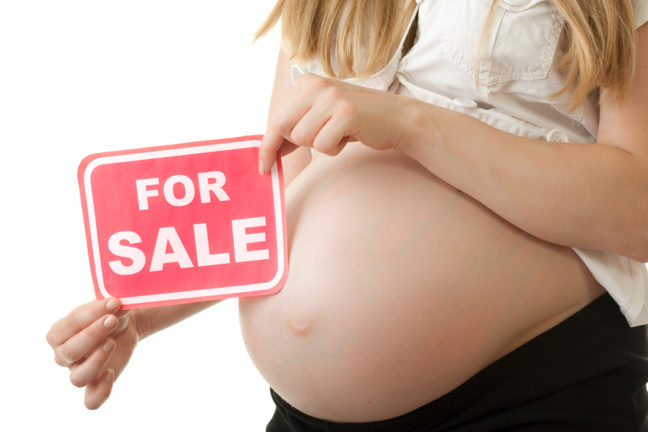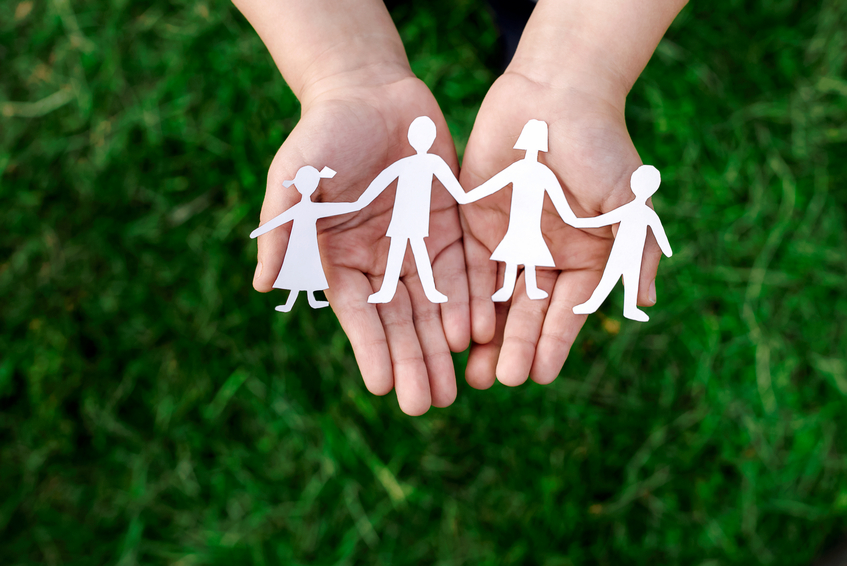
In an article published in the peer-reviewed journal Demography, social scientist Deirdre Bloome of the University of Michigan has found that family structure plays a part in causing an intergenerational decline in income.
Combing through data from the US National Longitudinal Survey of Youth, Prof. Bloome found that, “Difficulties maintaining middle-class incomes create downward mobility among people raised outside stable two-parent homes. Regardless of parental income, these people are relatively likely to become low-income adults, reflecting a new form of perverse equality.”
Moreover, she found that people raised outside stable two-parent families “are also less likely to become high-income adults than people from stable two-parent homes”.
Such mobility differences account for “about one-quarter of family-structure inequalities in income at the bottom of the income distribution and more than one-third of these inequalities at the top”.

Figures from the UK’s office of National Statistics show that more families of unmarried couples than of married couples are breaking down for the first time ever. Astonishingly, despite unmarried couples with children making up just one in five of all parents, they now account for more than 50 per cent of splits which involve children because they are so much more likely to break up than married couples.
Harry Benson, of the Marriage Foundation, who analysed the data, said the increase was due to a rise in the total number of families where the parents are unmarried. The group, which campaigns for the public understanding of marriage, said that an increasing number of unmarried couples would lead to more children being adversely affected by their parents splitting up. He added that the unpopularity of marriage was due to a preoccupation with “individual autonomy” in the UK and US.
Sir Paul Coleridge, a former High Court judge and founder and chairman of the Marriage Foundation, said: “Whenever family breakdown statistics are discussed people assume it means married couples divorcing, but . . . The real mischief is that separating cohabiting as opposed to divorcing couples are four times more likely to split up. This is the driver of the national tragedy of mass family breakdown.”

Women intellectuals, doctors, and scholars from all over the political spectrum met in Rome to lobby for a ban to prevent European citizens traveling abroad to procure surrogate mothers. Surrogacy is banned in almost all of Western Europe, including France, Spain, Sweden, Germany, and Italy, yet many people skirt those laws by commissioning surrogates abroad, often in poorer countries in what amounts to a kind of “reproductive exploitation” of the poor by the rich. Groups representing religious and conservative schools of thought have joined with feminists to oppose this practice, seeing it as inherently degrading to the dignity of women. The United Nations’ parliament condemned surrogacy in 2015, labeling it as a practice which “undermines the human dignity of the woman since her body and its reproductive functions are used as a commodity.”

A new report shows that in Europe, marriage is more likely to provide stability to children than cohabitation.
The report from the Social Trends Institute and the Institute for Family Studies, says that, “Analyzing data from 16 countries across Europe, we find that children born to cohabiting couples are about 90 percent more likely to see their parents break up by the time they turn 12, compared to children born to married parents.”
They add: “Our results suggest that there is something about marriage per se that bolsters stability. . . . By contrast, the very freedom and flexibility that makes cohabitation so attractive to some adults means that cohabitation is per se less institutionalized and therefore less stable. That’s why, even in highly developed and secular societies found in Europe, the institution of marriage is imbued with a stability advantage that benefits children.”

On the day the UK triggered article 50 to exit the European Union, a Commissioner of the Council of Europe harshly criticised Ireland over abortion, gender stereotyping, domestic violence and school admissions.
This is despite the fact that nothing in the European Convention on Human Rights has ever been interpreted by the European Court of Human Rights, an institution of the Council of Europe, to create a right to abortion, or restrict the admissions rights of faith schools.
Nils Muižnieks, a Latvian-American political scientist and Commissioner for Human Rights, published the report following his visit to Ireland, from 22 to 25 November 2016.
Regarding abortion specifically, Mr Muižnieks recommends the decriminalisation of abortion “within reasonable gestational limits.” He added: “At the very minimum, abortion performed to preserve the physical and mental health of women, or in cases of fatal foetal abnormality, rape or incest should be made lawful”. Such an abortion regime would be similar to the kind of abortion on demand law found in the UK.

The Human Rights Committee of the United Nations has criticised Italy for not providing greater access to abortion throughout the country due to the high number of doctors with a conscientious objection to carrying out the procedure.
The report called upon Italy to “take measures necessary to guarantee unimpeded and timely access to legal abortion services in its territory, including by establishing an effective referral system for women seeking legal abortion services.”
Nothing in Universal Declaration of Human Rights creates a right to abortion.

According to new research reported on in Science Daily, some of the negative consequences on the wellbeing of a child born to a single mother can be reduced if their biological father joins and stays with the family. Conversely, however, if the biological father leaves, or is replaced by a step-father, the children, on average, do no better cognitively, socially or emotionally than children whose mothers remain alone. The research was conducted by experts at the prestigious London School of Economics (LSE) by analysing data from the Millennium Cohort Study, a UK longitudinal study of around 19,000 children who were born in the UK between September 2000 and January 2002. Their final report was published in full in the peer-reviewed European Journal of Population.

The Taoiseach has confirmed that the heads of a bill to legislate for surrogacy and related matters of assisted human reproduction (AHR) is being worked upon and is due to be presented to the cabinet by June of this year. He was responding to a question in the Dáil by Fine Gael TD for Dublin Rathdown, Josepha Madigan, who said the legislation was supposed to cover “the areas of surrogacy, embryo donation, gamete donation, stem cell research and also the screening of embryos for genetic serious diseases”. The legislation was originally part of a bill drafted by the then Minister for Justice Alan Shatter in 2014 dealing with all aspects of surrogacy and donor-assisted human reproduction, but was shelved shortly after he resigned his position.

In a shocking case in the USA, a woman was trafficked from Mexico in order to act as a surrogate, but was kept in virtual slavery even to the point of being forced to have sex with strangers and be inseminated with their sperm. The orchestrator of the scheme, Esthela Clarke, 47, has been arrested by police and is facing up to 20 years in prison. Ms Clarke had met the victim in Guadalajara, Mexico and promised her $3,000 – $4,000 to act as a surrogate. The victim had to be smuggled from Mexico into the USA and then underwent repeated attempts at a crude homemade insemination using the sperm of Ms Clarke’s boyfriend. During this time the victim slept on a floor and was forced to work while handing over her earnings to Ms Clarke. The abuse continued for up to three years until a member of a local church rescued the woman and mad a complaint to the police.

In a brazen act of child trafficking, an American couple put a five-month old baby up for sale on the internet marketplace, Craigslist, reports the Irish Independent. The ad was spotted by police and an undercover detective responded to it. The detective subsequently met with the couple, handed over the asking price of $3,000 (€2,761) and received the baby in return. The couple were arrested on the spot. John David Cain (26) and Deanna Lynn Greer (37) are charged with aggravated child abuse and aggravated child neglect or endangerment, according to local TV station WSPA News. The baby is currently in the custody of the Tennessee State Department of Children’s Services.